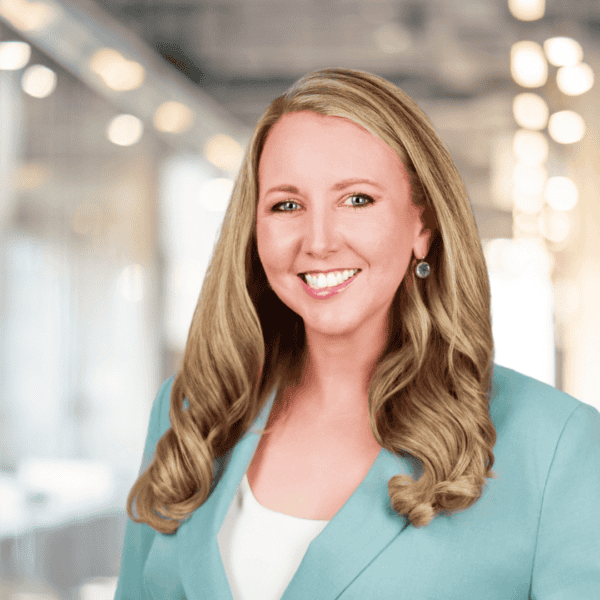
The LGBTQ+ community faces unique challenges when it comes to financial planning. A specialist financial advisor can help.
Financial planning is one of the most critical parts of gaining control over your money and your life. However, financial planning for the LGBTQ+ community can be more difficult as each state has different legal protections and benefits.
For example, many protections immediately trigger upon marriage, including inheritance laws, next of kin, and Social Security. If you are legally married, you receive these benefits without additional paperwork. However, if you are in a relationship that doesn’t have the advantage of legal marriage, you may need to do some extra paperwork to get the protection you deserve.
Though there are certain protections on the federal level, many states do not have equalized benefits in terms of access to credit, housing, and healthcare. Each location will have many rules governing adoption, parental rights, and other planning options.
It can be tough to wrap your head around all the different rules that affect the LGBTQ+ community, which is why careful financial planning is crucial. This article will dive into a few of the critical challenges the LGBTQ+ community faces regarding financial planning, how a financial advisor can help, and some actionable financial planning tips you can implement today. We’ll also introduce you to financial advisors who specialize in serving the LGBTQ+ community.
Table of contents
Find Financial Advisors for the LGBTQ+ Community on Wealthtender
📍 Click on a pin in the map view below for a preview of financial advisors for the LGBTQ+ community who can help you reach your money goals with a personalized plan. Or choose the grid view to search our directory of financial advisors with additional filtering options.
📍Double-click or pinch pins to view more.
Financial Challenges Faced by the LGBTQ+ Community
Before diving into the benefits of using a financial advisor and some personal finance tips, it’s essential first to understand the economic challenges faced by the LGBTQ+ community.
Compensation
One of the most significant barriers to the LGBTQ+ community building long-term financial wellness is compensation inequality in the workplace.
On average, LGBTQ+ individuals earn 90 cents for every dollar a U.S. worker makes. The issue is even more significant for LGBTQ+ individuals of color, with Native American LGBTQ+ individuals earning 70 cents on the average dollar and Black LGBTQ+ individuals earning 80 cents on the average dollar.
Higher Mortgage Debt
The average LGBTQ+ individual has around $200,000 in mortgage debt, an amount nearly 5% higher than other families in the United States. A higher mortgage means paying off your debt, and achieving your long-term financial goals can be more challenging.
Albeit a modest incremental debt burden vs. the average, this disparity in mortgage debt is partly because more LGBTQ+ individuals reside within cities where the cost of living is higher. This occurrence is likely because cities offer more safety and acceptance than most rural areas.
Cities are also known to be more inclusive to the LGBTQ+ community and are places where various cultural and political backgrounds come to mesh.
Student Loans
One of the most significant areas where LGBTQ+ individuals suffer is student loan debt. Across America, the average LGBTQ+ family owes over $70,000 in student loans. This amount is 85% higher than the average American family.
Discriminatory regulations and policies often hit LGBTQ+ students hard, making it difficult to go through school financially burden-free. Some homophobic families also refuse financial support for their children, leading LGBTQ+ students to be more self-reliant and have to fall back on student loans to get them through college and university.
Credit Card Debt
On top of student loans, LGBTQ+ individuals also suffer from more credit card debt than the average U.S. individual. With credit cards having some of the highest interest rates, having a more considerable amount of this type of debt can make it hard to achieve financial goals.
Benefits of Working with a Financial Advisor
With all the hurdles LGBTQ+ individuals face, it could be wise to consider working with a financial advisor. Here are some of the main benefits.
Family Planning Nuances
If you’re in the process of planning a family, it may be wise to seek out a financial advisor. Whether you’re planning adoption, foster care, or surrogacy, significant family decisions can have a substantial financial and emotional impact on you.
Finding a financial planner who specializes in working with LGBTQ+ clients can be very beneficial as they can help you understand state-specific regulations and tax credits.
Furthermore, if you aren’t considering getting married, seeking a financial advisor who understands the details of sharing bank accounts, splitting costs, and filing returns without the safeguard of marriage is essential.
Establishing Spending Plans
If you’re too busy moving to a new part of the country, supporting yourself through school, or dealing with certain healthcare expenses, debt may not be at the forefront of your mind. However, debt is one of the biggest draggers on your financial goals.
Working with a financial advisor might be helpful if you’re looking for a way to manage your spending and don’t think you can handle all the complexities yourself.
Achieving Long-Term Financial Goals
Do you hope to one day be financially independent or retire early? You’ll need to plan well ahead to achieve your long-term financial goals. This planning can include creating a budget that accommodates your lifestyle but allows you to save a bit of money each month.
Though a DIY approach could save you a couple of dollars in fees in the short term, partnering with a financial advisor could help you achieve your financial goals much faster and alleviate a lot of the stress you may be experiencing.
ASK THE EXPERT
Q: As a financial advisor who specializes in serving the LGBTQIA+ community, what unique challenges do your clients often encounter, and how do you help?
We asked New York City-based financial advisor Michael Raimondi to answer this question. Here’s what he said.

One of the most daunting challenges the LGBTQIA+ community faces is finding a professional with whom they can talk to openly about their finances and who understands their lives. Financial services is a notoriously heteronormative industry. The last thing a client wants to be concerned about is being judged for who they are by their financial professional. Having a shared, lived experience with my LGBTQIA+ clients allows us to focus on the financial planning at hand without them needing to explain the rationale behind their decisions.
A lesson my community has learned over time is that we need to become experts at everything. If we want something, we have to figure out how to make it happen on our own because history has proven to us that sufficient support from other sources is rare, if it exists at all.
When it comes to financial planning and investing, the learning curve is often too steep for an LGBTQIA+ professional to try to master while simultaneously developing their career in another industry. Therefore, the need for financial services is clear, but our needs are specific. And we tend to want to be engaged with in a collaborative manner.
Transparency, communication, and financial education are paramount to a successful working relationship with any client, especially LGBTQIA clients.
Michael Raimondi, MFA, CFP® | Clarus Group
Financial Planning for the LGBTQ+ Community
Regardless of whether you choose to work with a financial advisor, here are some actionable tips you can use to start moving your finances in the right direction today.
Set Goals
One of the essential parts of achieving wellness in your finances is to set goals for yourself. It’s tough to achieve your goals if you don’t have any.
Try to break up your goals into a couple of different time frames. A long-term plan can work wonders to align you and keep you on the right path. However, having some short-term goals can keep you motivated, so you keep putting in the work daily.
An excellent financial goal should follow the SMART goal-setting approach:
- Specific
- Measurable
- Actionable
- Realistic
- Time-Bound
What this might look like in action: “I increase my savings rate to 20% of my total income by the end of next year.”
Create a Budget
Once you have outlined your financial goals, the next step is to create your monthly budget. Though you may not realize it, having a budget can help you organize your spending and maintain order throughout your finances.
You’ll want to start by listing your total income and expenses and figuring out exactly how much money is going to each area of your life. A good rule of thumb to follow is 50/30/20. This budget is when you spend 50% of your after-tax income on needs, 30% on wants, and 20% on savings.
Though you can try many different budgeting methods, the important thing is to start tracking your finances. After all, you can’t improve what you don’t keep tabs on.
Minimize Debt
Reducing debt should be a top priority for anyone serious about getting their finances in check.
If you still have student loans, credit card debt, or personal loans, you should prioritize paying those off as soon as possible.
Debt makes it very hard to achieve financial goals and can add many years to your financial plans. Regardless of whether you use the rain shower or snowball method, you should figure out how to pay off your debt as efficiently as possible.
Build an Emergency Fund
Something as simple as a car repair can throw a big wrench in your financial plans if you don’t account for it ahead of time. Building an emergency fund can help you prepare for all of the unexpected incidents that could happen in life.
A general rule of thumb is that your emergency fund should be between 3-6 months of your regular salary. So if you’re making $60,000 a year, your emergency fund should be $15,000 – $30,000.
Three to six months might sound like a long time (and a lot of savings), but this is a pretty good measure of the time it takes for someone to network and find a new job after losing their old one. Having this money saved can help prevent you from going into unnecessary debt and burdening yourself with high-interest rates.
Invest for the Future
Once you have repaid debts, a solid budget, and a substantial emergency fund, the next step is to invest for the future. It’s tough to gain financial independence without letting your money work for your future.
Setting aside a chunk of money every month to invest is a great way to ensure that you’re moving towards your financial goals no matter what happens. It may not seem significant in the short run, but compounding works magic when mixed with time.
How To Find The Best Financial Advisors for the LGBTQ+ Community
While you may find a great financial advisor to work with through the referral of an acquaintance or whose office you drive by on your daily commute, it’s important to consider several factors to improve your odds of hiring the best financial advisor for your individual circumstances.
As a member of the LGBTQ+ Community, you may decide the best financial advisor for you is one who specializes in understanding your unique financial planning challenges.
Because many business financial advisors can work with you online, you’re not limited to hiring a financial advisor in your neighborhood when the best financial advisor for you may live hundreds of miles away.
In other words, whether you choose to hire a financial advisor who lives near or far, it may be most important to hire a financial advisor who truly understands your individual needs based on their education, experience, and commitment to serving the LGBTQ+ Community.
You’ll find a growing number of financial advisors on Wealthtender who serve the LGBTQ+ Community; including in the directory on this page.
There are many challenges that the LGBTQ+ community faces when it comes to finances. For that reason, it’s even more important to implement sound financial planning.
This article has covered some of the main benefits of working with a financial advisor and some actionable personal finance tips you can implement today. Whether you take charge of your financial future is entirely up to you!

About the Author
Jeff Fang
Jeff is a Harvard 2025 student who is passionate about learning, living, and sharing all things personal finance-related. He has experience working in the financial industry and enjoys the pursuit of financial freedom. Outside of blogging, he loves to cook, read, and golf in his spare time.



































